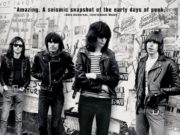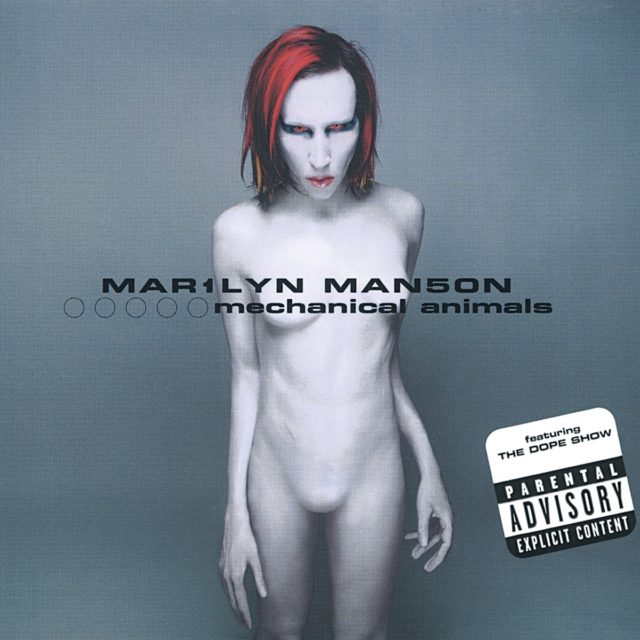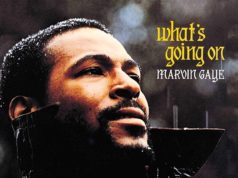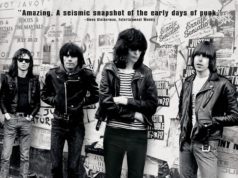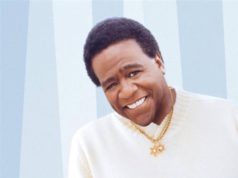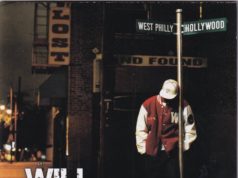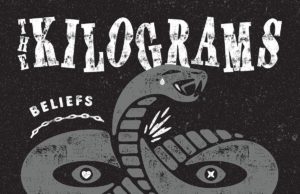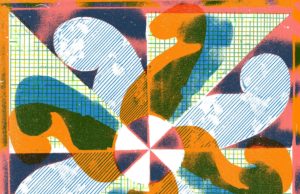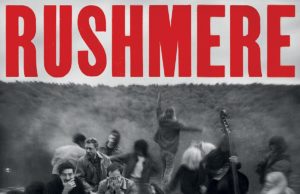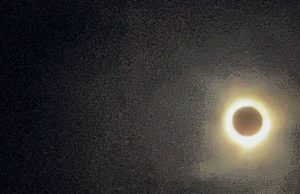This came out in 1998 – or at least that’s when I got it. Here’s what I said about it back then (with some minor editing):
Call it The Return Of The Thin White Spook.
After spending most of the decade trying to be Alice Cooper with his zombie-movie makeovers, shock-rock shtik and trailer-trash Satanism, demonoid phenomenon Marilyn Manson has exorcised his rock ’n’ roll devils and been born again … as David Bowie?!
Believe it or not, on Mechanical Animals, Manson has ditched doom and gloom for glam and glitz, abandoned his psycho-industrial thrash for ’70s space-rock and turfed his Antichrist Superstar persona for an androgynous, crimson-tressed alien rock star alter-ego straight out of Ziggy Stardust.
Make that Ziggy Angeldust. The plot to this high-concept album, sez Marilyn, is something about Manson … sorry, Omega, being in love with a girl named Coma White, which turns out to be the drug he’s addicted to. Or something like that. Whatever. What Omega really serves as is a fairly obvious metaphor for Manson’s eternal alienation from humanity — aka the Mechanical Animals — as viewed through a pharmacopoeia haze and set to a synthetic glam-rock hook.
Actually, there are several hooks — mostly raided from Bowie’s vault. Some are obvious, like the Fame clone I Don’t Like the Drugs (But the Drugs Like Me) or the Space Oddity-inspired Disassociative and Speed Of Pain. Other touches are more subtle — a ringing, mile-wide Ziggy riff here, a bit of Lodger-era noise there, some R&B backup vocals and Manson’s cadaverously soulful crooning everywhere.
Remarkably, he manages to make it sound fresh. Manson’s ’90s goth-metal and jaded ennui dovetail seamlessly with ’70s ersatz extravagance, yielding his most accessible, musical songs thus far — if you can call a ballad titled Fundamentally Loathsome accessible.
Of course, naysayers will just call Mechanical Animals a Bowie ripoff. Maybe so. But hey, it’s still a better Bowie album than Bowie has made lately.





